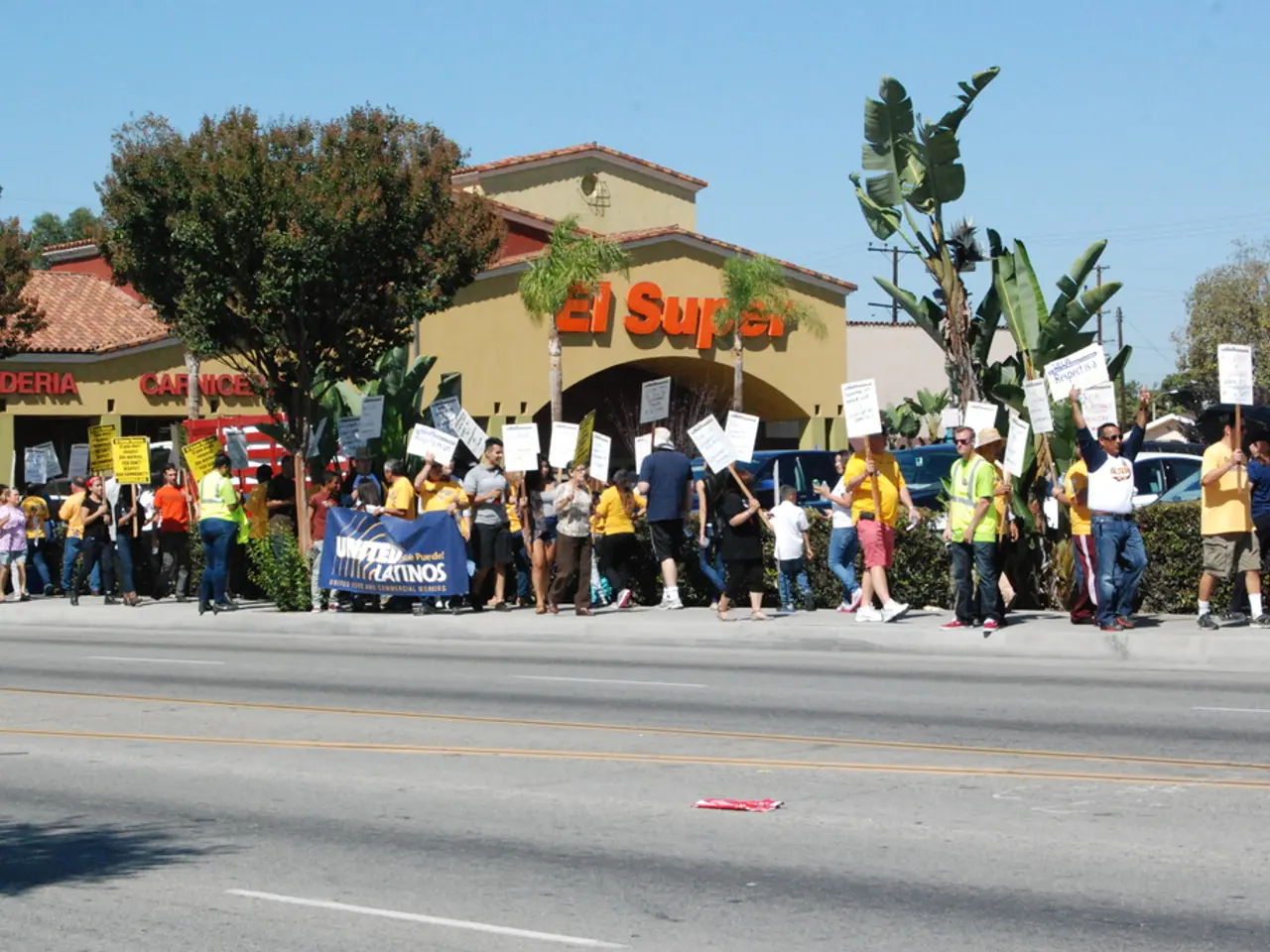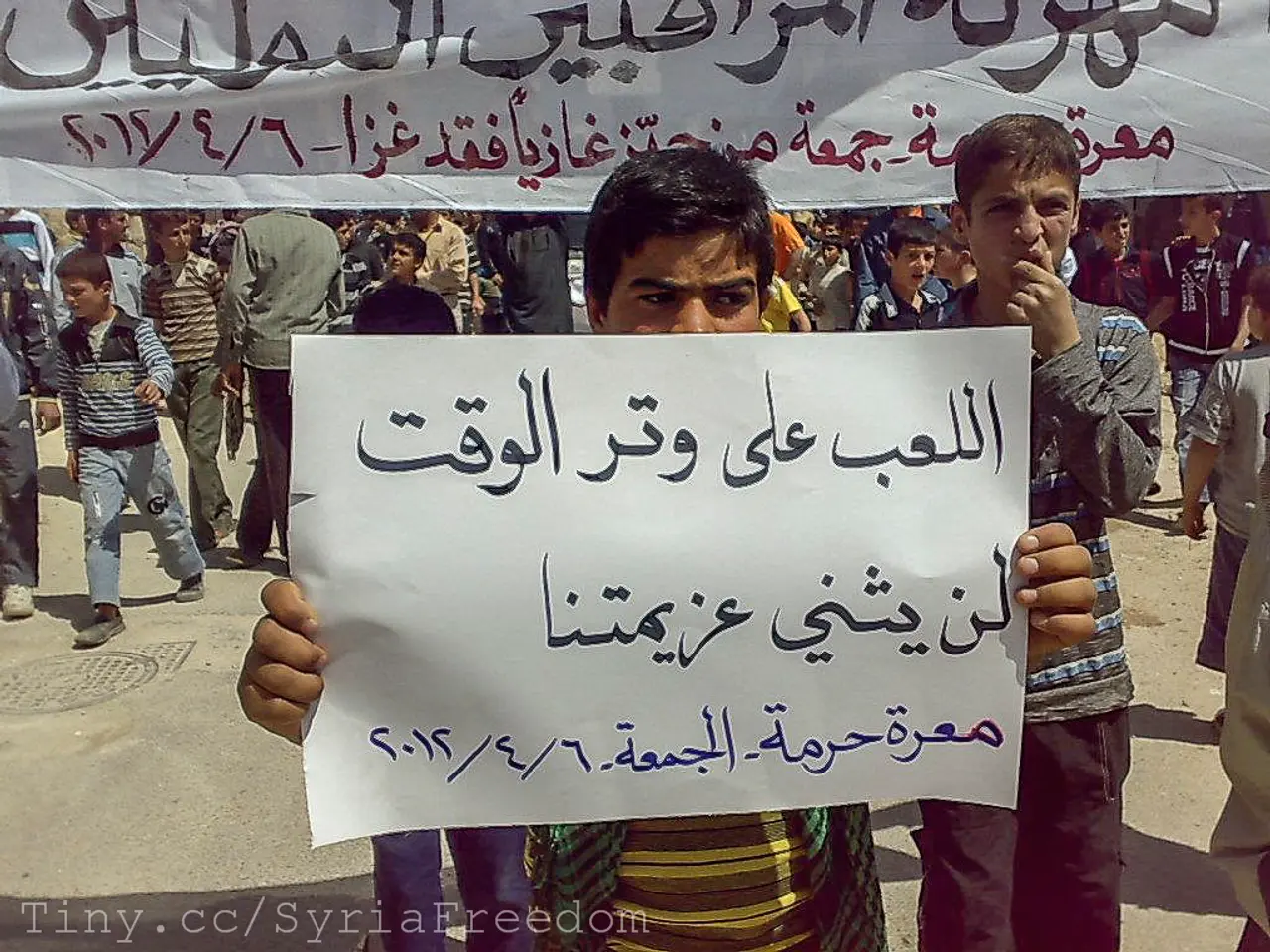Impact of Iraq's Invasions of Kuwait on the Regional Landscape after Three Decades
In the early hours of August 2, 1990, Iraq launched a surprise attack on Kuwait, marking the beginning of a seven-month occupation that would leave lasting scars on the region. Thirty years later, many Kuwaitis are still seeking answers about the fate of 308 missing people, presumed dead since 1991.
The invasion, which involved hundreds of Iraqi tanks, tens of thousands of troops, helicopters, and fighter aircraft, caught the Kuwaiti forces off guard. Despite a valiant effort, the Kuwaiti forces were outmatched and unable to prevent Iraqi troops from reaching the gates of Dasman Palace in Kuwait City. Kuwaiti pilots, however, managed to down at least 20 Iraqi helicopters before their bases were overrun.
Tragically, Emir Jaber Al-Ahmad Al-Sabah and most of his family were evacuated just in time, but his younger brother, Sheikh Fahad, was among those who died in defense of the palace. Those who were unable to escape faced an ordeal of looting, arrests, and executions during the occupation. Many Kuwaitis fled the country, seeking sanctuary in neighbouring Saudi Arabia.
The issue centres on the Khor Abdullah, the narrow waterway shared between the two countries, and there hasn't been any closure on this, which isn't good for either country. The maritime boundary between Iraq and Kuwait has not been settled for the past 20 years, causing ongoing uncertainty. This ongoing uncertainty is being exploited by Iraqi politicians to boost their electoral fortunes, potentially undermining the confidence of investors and industry over the viability of both the Grand Faw Port in Iraq and Kuwait's Mubarak Al-Kabeer Port.
The invasion of Kuwait destroyed the last real champion of pan-Arabism, creating more space for radical Islamists. The national archives of Kuwait, stolen during the invasion, remain missing, and the fate of them is still unclear. The ongoing uncertainty over the maritime boundary is just one of the many long-term geopolitical consequences of Iraq's 1990 invasion of Kuwait.
The invasion precipitated international military intervention (the Gulf War), led to severe economic sanctions on Iraq, and entrenched deep mistrust among Gulf countries, especially regarding their vulnerability to aggression. This, in turn, fostered closer security cooperation with external powers like the United States to deter potential future aggression.
The invasion of Kuwait had enduring effects that reshaped Middle Eastern geopolitics: increased Iranian leverage, ongoing Gulf insecurity, and lasting fractures in international diplomacy and regional alliances. Significant regional destabilization, increased sectarian divisions, and a major shift in Gulf states' security policies are just a few of the key impacts.
The economic decline in Iraq, prolonged sanctions, and war destroyed Iraq’s economy and infrastructure, leading to internal uprisings that were violently suppressed, keeping the country unstable throughout the 1990s. The resolutions imposing compensation and weapons inspections on Iraq fractured UN unity, led to scandals like the food-for-oil controversy, and undercut the UN's reputation as a peacekeeper.
The invasion caused displacement, notably the expulsion of Palestinians from Kuwait into Jordan, radicalizing some Palestinian communities and increasing regional tensions. Iraq’s bid to control Kuwaiti oil disrupted oil markets and underscored the strategic importance of the Gulf, escalating global concerns over energy security and regional power balances.
The long-term geopolitical consequences of Iraq's 1990 invasion of Kuwait are still being felt today. The Iraqi government is working to support the recovery of the remains of missing people, but more effort is needed to bring closure to the families still seeking answers. The maritime boundary between Iraq and Kuwait remains unresolved, causing ongoing uncertainty that is being exploited by Iraqi politicians.
In conclusion, the invasion of Kuwait in 1990 was a turning point in Middle Eastern history, with far-reaching consequences that continue to shape the region today. The echoes of the invasion are loudest in Kuwait, leaving the country trapped in a combination of denial and survival mode, preventing a return to normalcy.
[1] Coll, Fredrik (2014). "The Gulf Wars: A History." Penguin Books. [2] Scales, Robert (2009). "War Plan Iraq: Ten Scenarios." Potomac Books. [3] Kaufman, William (2004). "Gulf War Air Power Survey." Air University Press. [4] United Nations Security Council Resolution 687 (1991) [5] United Nations Security Council Resolution 661 (1990)
- The invasion of Kuwait by Iraq in 1990, marked by a surprise attack, left lasting scars not only on the region but also on the world, causing an ongoing uncertainty between Iraq and Kuwait over their maritime boundary.
- The Iraqi war against Kuwait resulted in significant foreign interventions, international sanctions, and deep mistrust among Gulf countries, particularly Saudi Arabia.
- The national archives of Kuwait, stolen during Iraq's occupation, remain missing, posing a challenge to the general news and academic circles exploring the history of the Middle East.
- The event kickstarted a chain reaction of regional destabilization, increased sectarian divisions, and a shift in Gulf states' security policies, with Saudi Arabia becoming a key alliance partner for many of these countries.
- Apart from geopolitical consequences, the invasion also had profound social impacts, such as displacement and expulsion of Palestinians from Kuwait, impacting global energy market dynamics and regional power balances.








